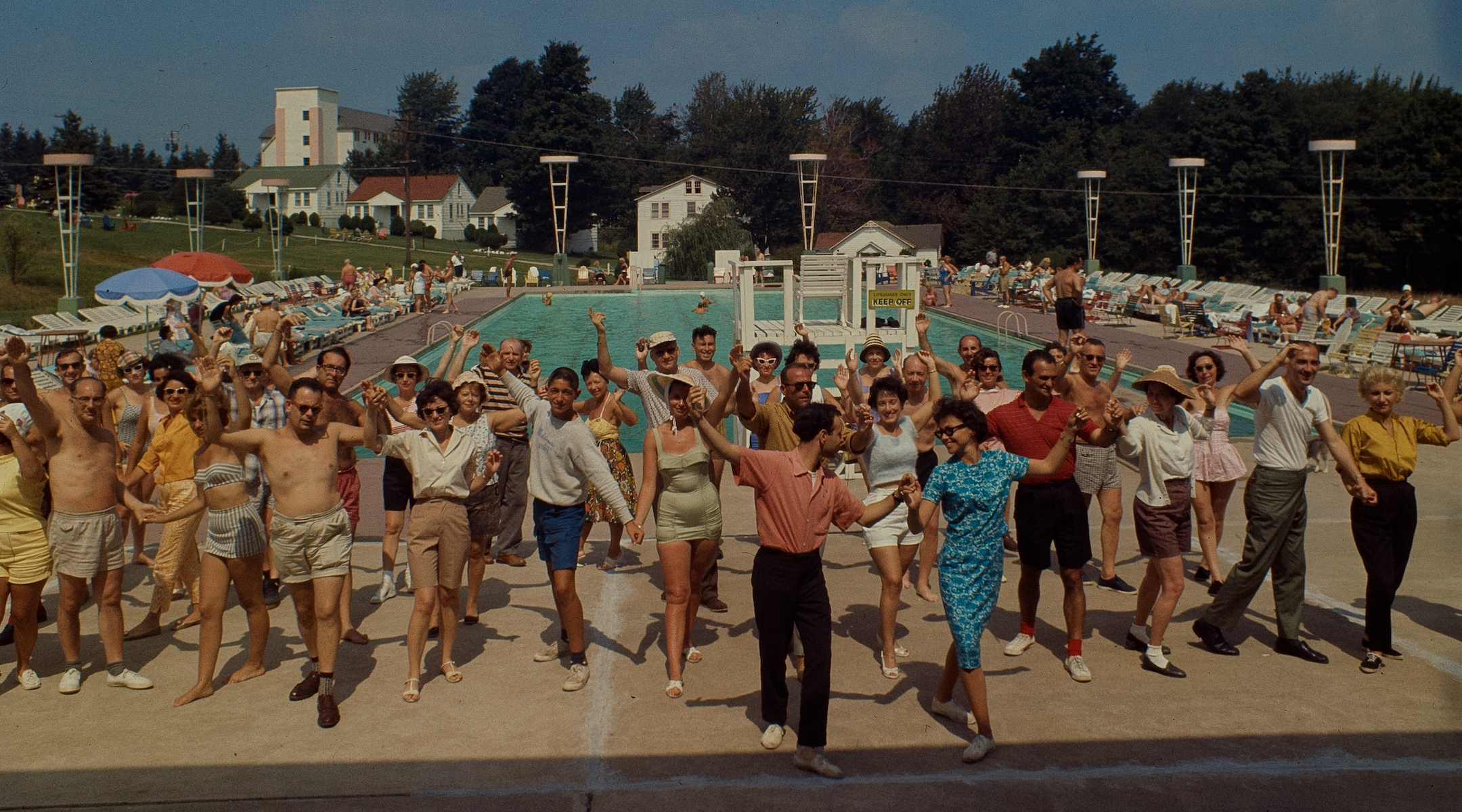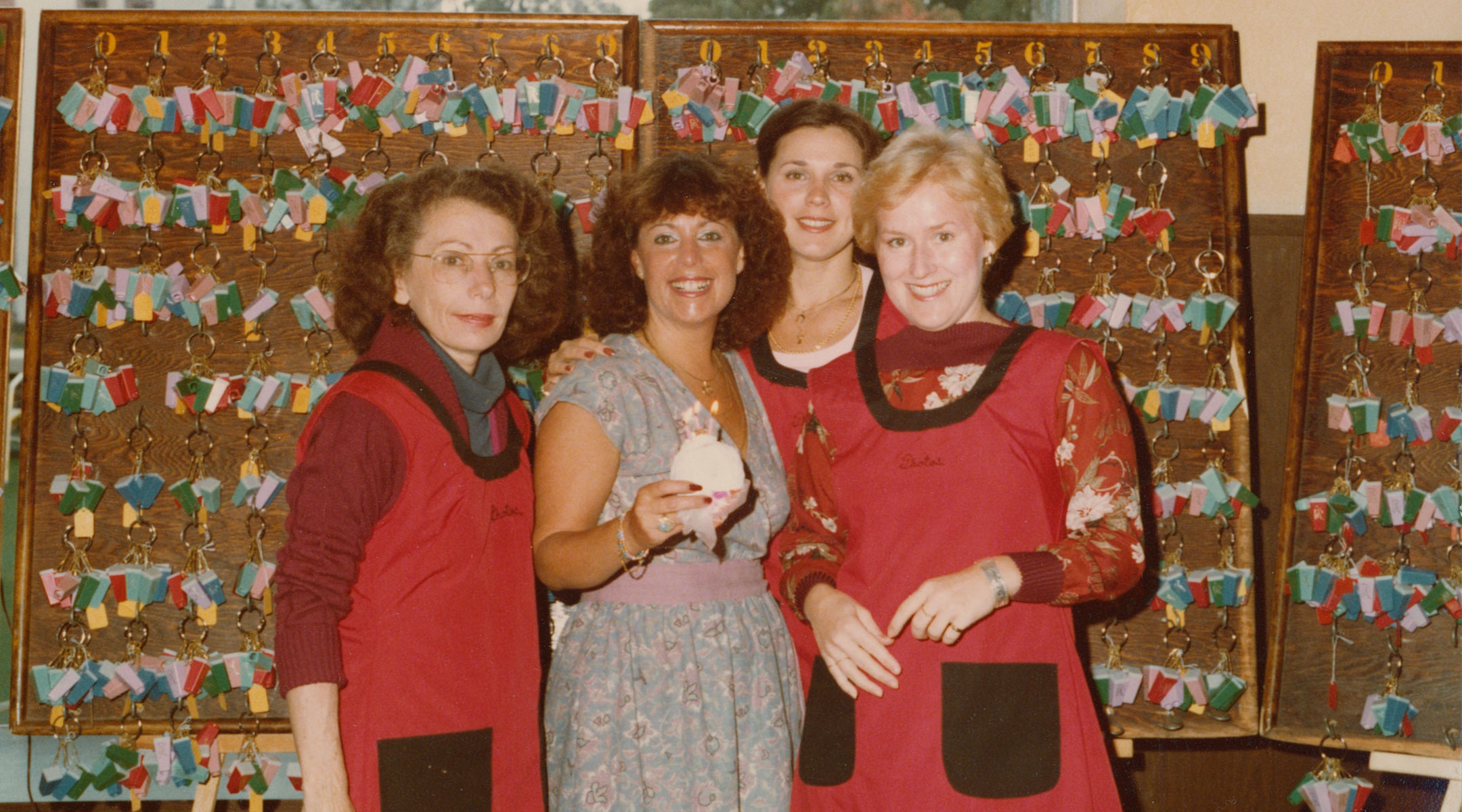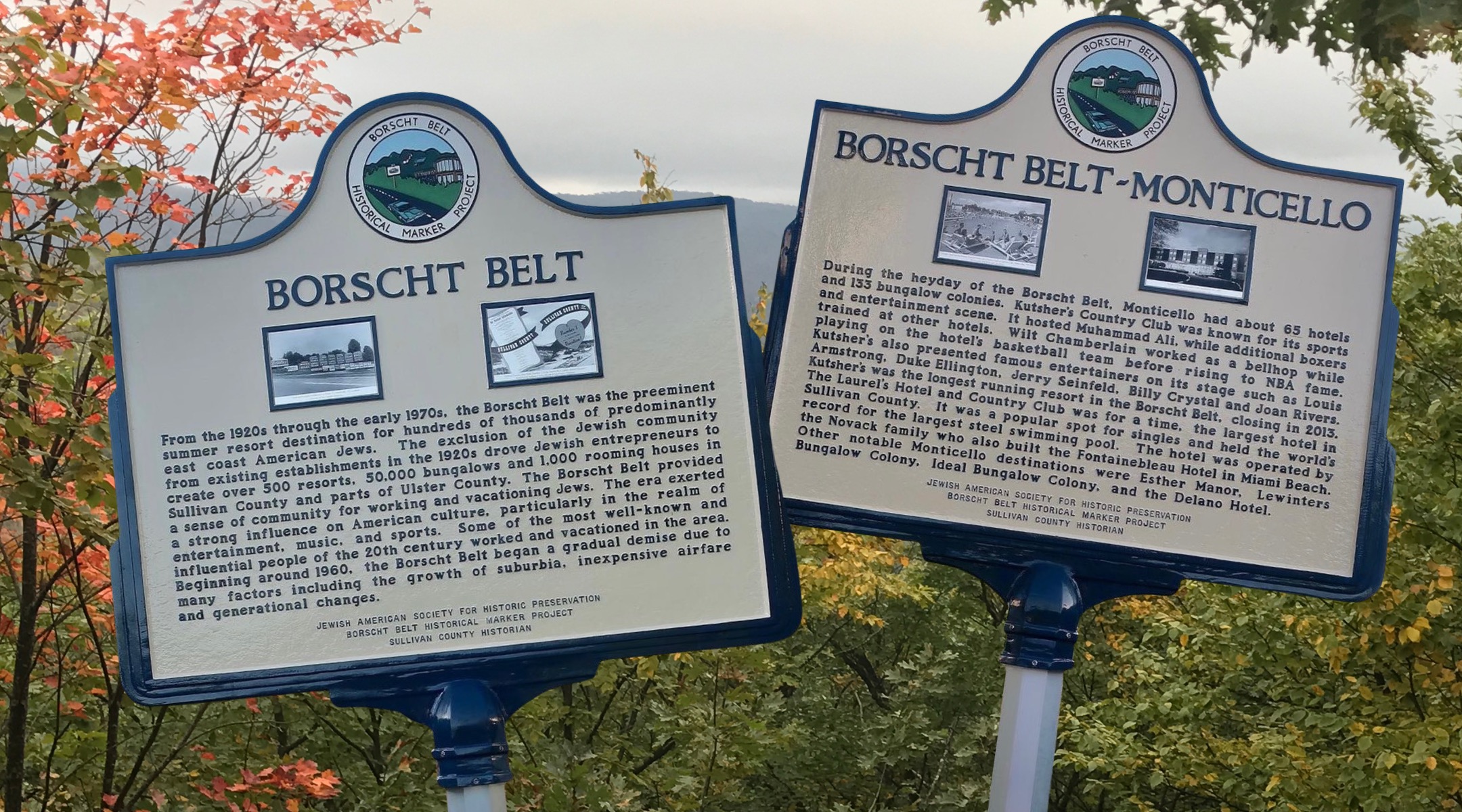(New York Jewish Week) – The Borscht Belt, the Jewish vacationland in New York’s Catskill Mountains, has been in decline for nearly as long as it once thrived. Most of the resorts and hotels that drew Jews to “the mountains” in the first half of the 20th century were eventually abandoned — with several catching fire in recent years — and fated to be forgotten.
The Borscht Belt Historical Markers Project aims to rectify that. Organizers are erecting a series of 20 metal signs in towns that were significant to the region’s history, hoping to do for a cradle of American Jewish culture and comedy what Boston’s Freedom Trail did for the American Revolution. A marker in Monticello, for example, in the beating heart of the Catskills, describes Kutsher’s Hotel and Country Club and the Laurels Hotel, legendary resorts that each hosted thousands of guests in their heyday.
The markers have QR codes that link to more history and photographs.
“Each has its own unique history related to the Borscht Belt and the markers discuss that history, referencing everything from cultural figures to entertainers that came to those towns and the hotels,” said Marisa Scheinfeld, the founder and director of the project. “While they touch on each town, one side of every marker always says the same thing, describing what the Borscht Belt was and that from the 1920s through the 1970s it was a Jewish American place of refuge.”
The project began last summer with markers and events in Monticello, Mountain Dale, Swan Lake and Fallsburg.

Dancing at the Outdoor Pool, Waldemere Hotel, Livingston Manor, NY, circa 1965. (Courtesy Steingart Associates)
This summer, the initiative is unveiling five more markers in South Fallsburg, Kiamesha Lake, Hurleyville, Bethel and Woodridge. Launch events throughout the summer aim to revitalize the region with love for the Borscht Belt and its history.
The goal, Scheinfeld said, is to have all the markers in place by the end of the summer of 2026, when they will also be connected by a driving self-guided audio tour through the region.
“This project really cements the Borscht Belt in its enduring physical space in a way that hasn’t been done, that has longevity and range,” Scheinfeld said. The project is not associated with The Borscht Belt Museum and Borscht Belt Fest in Ellenville, other recent efforts to recall the area’s Jewish glory days.
Scheinfeld, who grew up in Monticello in the 1980s, said she was inspired to create the project while she worked on her 2016 photography book, “The Borscht Belt: Revisiting the Remains of America’s Jewish Vacationland,” for which she photographed the decaying, abandoned properties scattered throughout the region.
“Before we started, there was not one historic marker anywhere that said ‘this is the Borscht Belt and this is what it was,’’’ Scheinfeld told the New York Jewish Week. “We intentionally put them in public spaces and in the center of communities to get people to engage with them.”

Ellen Cutler and Staff of Concord Photographic Services selling photo viewers, Concord Hotel, circa 1980s. (Concord Photographic Services)
Scheinfeld teamed up with philanthropist Jerry Klinger, who runs the Jewish American Society for Historic Preservation, which erects historical markers dedicated to the Jewish American experience across the world. She now has a team of nine people helping curate the markers and the events.
“The markers are really cool because it really does add a little bit of zhuzh to an area that is barren of its Borscht Belt history,” said Isaac Jeffreys, a photographer and visual coordinator for the initiative. When a person drives through the region as it is now, “You don’t really know that it ever existed there — you’re just seeing the ruins and then seeing the empty lots and towns where buildings used to be,” he said.
Scheinfeld also hopes to unite the Jewish community across the Catskills region, including the growing population of Orthodox families that are moving there or spending their summers in bungalow colonies.
“I really want to bridge the Orthodox community and the secular Jewish community, which don’t often intermingle. I’m hoping that the presence of us and the project will draw some Orthodox communities in to check things out,” Scheinfeld added.
This summer, the dedication events for the new markers include a food truck from the Borscht Belt Deli in Newtown, Pennsylvania, followed by a screening of the documentary “The Catskills” on May 25 in South Fallsburg; a music and cocktails reception at Resorts World Catskills in Kiamesha Lake on June 13; a literary and arts expo in Hurleyville on July 21; a Woodstock memorial event in Bethel on Aug. 17 and a kosher picnic in Woodridge on Aug. 25.
The New York Jewish Week brings you the stories behind the headlines, keeping you connected to Jewish life in New York. Help sustain the reporting you trust by donating today.





